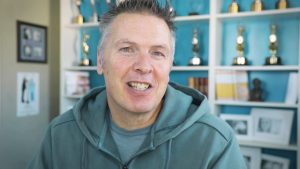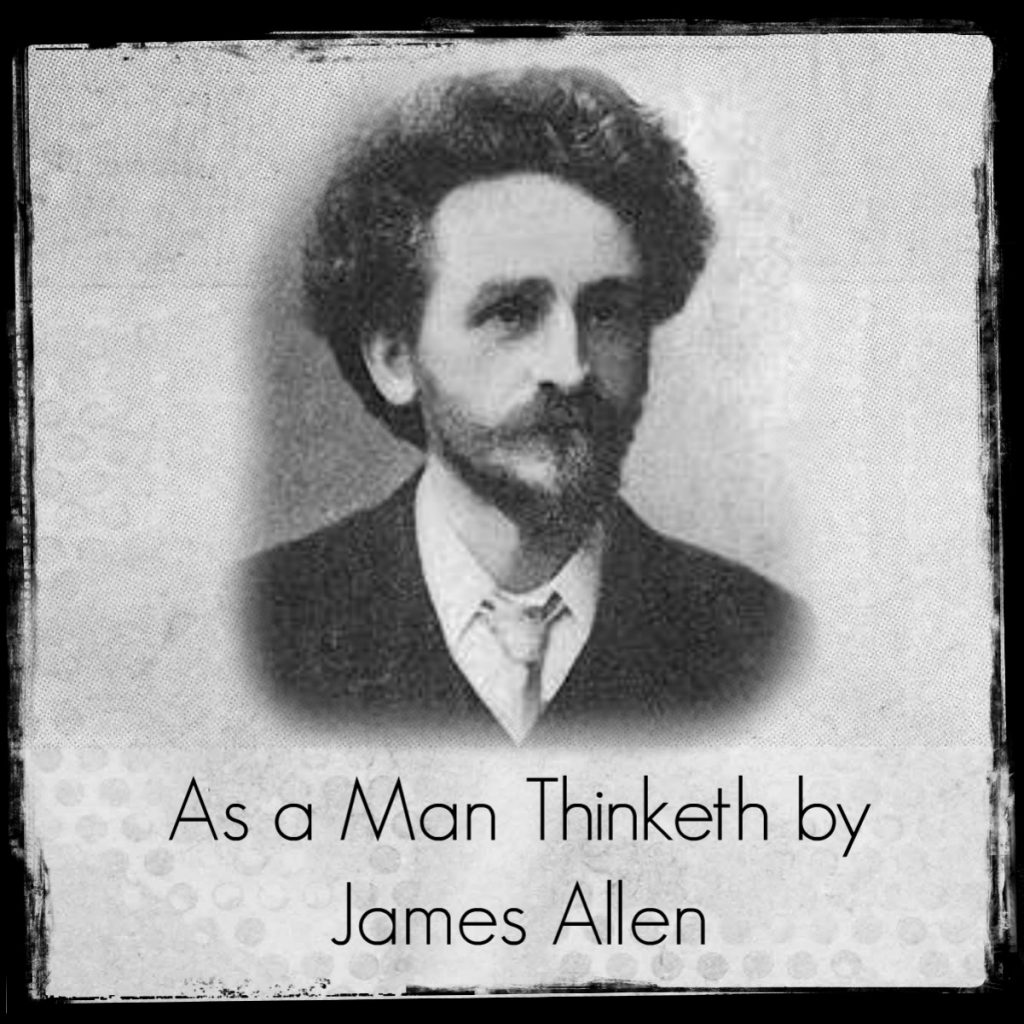Amanda van der Gulik interviews me on how to apply the principles of prosperity while raising a young family, and how to teach children about money. Discover how the lessons can be applied as adults, too for greater abundance.
Resources mentioned on the audio:
Jackrabbit Factor free download
Wealth Principles and Yard Sales
Portal to Genius free download
Allowance Secrets – to give or not to give
Related: New Mindset Training for Kids!
TRANSCRIPT:
ANNOUNCER: Welcome to the Rare Faith Podcast, where the solution to every problem is only an idea away, and where the same activity, with just a little more awareness, always yields better results. Award-winning, best-selling author, Leslie Householder, brings some of her best information to this inspiring series of life-changing episodes that you won’t want to miss. Show notes for this episode can be found at ARareKindofFaith.com
AMANDA: Welcome back everyone. This is Amanda van der Gulik from teachingchildrenaboutmoney.com. Today I have the pleasure of speaking with my dear friend, Leslie Householder. Leslie is a contributing author in the book Allowance Secrets: To Give or Not to Give? and like many of the contributors from the book I met Leslie at a JV party that a friend of ours had for the my movie team and I just clearly remembered seeing Leslie as she walked into the party that she just brought this breath of fresh air, she’s got such a gentle sweet soul to her and she’s very inspiring. At the party Leslie gave my husband, Rob, a copy of her own book: it’s a best-selling international book called The Jackrabbit Factor. And this book was absolutely addictive to read. Leslie sure has an incredible talent with words. The Jackrabbit Factor is a book that you’ll truly enjoy reading with your kids and teens. My husband and I, we, stayed up every night and we read a chapter or two every night before going to sleep. And I swear sometimes I just didn’t want to stop reading but I knew I had to go to sleep and be prepared for the kids in the morning. Now, Leslie herself is a mother of seven children. And she too realizes that there is a deep need to train our children about money; the way our children think about money, and the fact that it really is not taught in schools. Now you may recognize Leslie as a contributing author of numerous Chicken Soup for the Soul books, but if you’ve read the Allowance Secrets book I’m sure you will know exactly what I’m talking about and I’m sure you will enjoy meeting Leslie and get great benefit from her words. So, Leslie welcome.
LESLIE: Thank you.
AMANDA: Thank you so much for being here with us today.
LESLIE: Oh. It’s so good to be here. I loved getting to know you better Amanda, and your work is tremendous. I just love what you’re doing.
AMANDA: You’re lovely yourself. And I truly am thrilled to have you with us here today. You know you’re such an inspiration to all of us. If you don’t mind Leslie let’s start from the beginning. Now tell us a little bit about yourself: what were you doing before you wrote that incredible The Jackrabbit Factor book? You know what was your inspiration for it?
LESLIE: It’s funny because when my husband and I got married we decided that I would stay home with the children when they came to our family. That was something we both wanted for our family but when our first baby came along, that whole pregnancy we’re trying to figure out, ‘how are we going to do this?’ because together, and this was just oh maybe almost 20 years ago, together we were only making about $1,000 or $1,200 a month between the two of us. And this was not back in the 1950s so, you know, it really, really didn’t go very far. And we were struggling to stay afloat and but the baby was on his way. And so when when our first son was born I decided that I was going to just stay home on faith; somehow it would work out. This is what we felt like we needed to do for our family and so there would be a way. And of course that year we just kind of fell deep into debt and at the end of the year my husband actually lost his job, for I think it was an injury, I can’t remember exactly why he lost his job but it forced me back to work and it just started this cycle of depression that life was not turning out the way we had expected or planned.
And so it started the next seven years – we had some friends who encouraged us to come with them to some seminars that were not expensive seminars we of course couldn’t afford very pricey ones but we were attending these because they knew that our thinking had something to do with the results that kept showing up for us: the the way our cars wouldn’t start, the way accidents kept happening, the way our medical bills were piling up, just everything seemed to be stacked against us and it was a very, very difficult time. Every time we’d go to these seminars we came away feeling like, ‘you know what we can rise above this. We can find a way. We can start a business. We can…,’ you know. And we came away empowered and excited about the future knowing that one day we would, we would be wealthy and that we would be able to raise our family with all the resources to help them develop all their talents and help them become the best they could be. And this was, this was our ambition.
And after seven years or so I hit rock bottom because you know I counted, we’d been to more than a hundred seminars and nothing really had quite changed. Except we were deep, deep, deep in debt now. A lot because of the seminars and I was feeling a little bit bitter. And finally there was one more seminar coming along and my husband said, “Okay here’s another one.”
I’m like, “I can’t do this anymore. I can’t. I’m done. I’m so done.”
And finally you know there was a piece of me that couldn’t let go of the hope that maybe this is the one that would change everything.
And so I agreed, “Okay this will be the last one.” I actually said that twice, but long story short the one that I went back to presented some ideas that kind of boiled everything we’d been learning all those years down into one simple package of truth that said, ‘you know what it’s not rah-rah motivation you can do it. It’s here’s how life works. Here’s how the universe operates. Here’s how to work in alignment with the laws that govern prosperity.’ And it was simple, and it was profound, and it made sense, and we put it to the test, and in three months tripled our income.
AMANDA: Wow.
LESLIE: It made such a difference and it was so simple, it was so, it wasn’t easy because we were, we had to constantly fight the tendency to think fear. We had to fight the tendency to think doubt and concern and worry and calculations and all these things that tend to shrink your creative mind. We had to let go of all that and think creatively and just allow the solutions to come to us. And the solutions that came were uncomfortable and scary, but when we put ourselves to it knowing that it was there for a reason we came out on the other side with these great results. And you know I had never been looking for a career. It wasn’t my, you know, I wanted to be home with my children.
And yet when this happened I suddenly felt this passion inside of me that said, ‘I am duty-bound to share what I’ve learned with other families who feel the way we felt.’ And it has become one of my primary missions here in life. I love my role as a mother. I, like you said, I have seven children now and raising them is where my greatest joys come from but I also make an effort to share what I’ve learned and you know it’s become a family business. The children have been learning these principles and they’ve been seeing them work. I’ve watched them apply them. And my daughter has started a blog force, she’s teaching other 11 year olds how to be successful in life. It’s so much fun.
AMANDA: Wonderful.
LESLIE: It’s so much fun.
But you know that’s where it was and I started teaching seminars but it was very, very difficult to put audiences together and to get my message out where everybody who knew me, knew the old us and they didn’t know that anything had changed inside. We’re still driving in the old cars and everything and here we’re going to teach you how to be successful. And I was pregnant with number five and my husband at the time was actually working two hours away and so things were pretty harried. The money was flowing better than ever but things were not quite ideal yet. I decided I can’t keep up with the seminar thing but I feel guilty not talking about it so I decided I would write a book and let that be my seminar and that’s what The Jackrabbit Factor became.
AMANDA: Okay. Wow. Well and it’s sure did, I mean its internationally just off the charts. It is amazing.
LESLIE: I think the reason it’s so effective with people is because it’s not just talking about, ‘Here’s how you need to think. Here’s the checklist, make sure you’re doing all these things.’ It’s woven into a story so that it gets out of your head and gets into your heart. That’s where it needs to be to effect the changes that we’re looking for. And so, you know, I thought I needed to do something that was different than all the other books I’d read, and the seminars I’d been to. Somehow I needed to reach in and connect with the person who I was and bring them through the same processes that took us seven years but I’d like them to experience that transformation in two to three hours. And that’s what the story is intended to do.
AMANDA: Wow. Had you had experience writing stories before?
LESLIE: No. I was a math major. (laughter) I was, I was the analytical type. And I think that’s also what I bring to this is that it takes having a spiritual mindset. It takes having a creative mindset. And I was very, very analytical. I think I was born creative and born more on the spiritual side of things but going through school I became very analytical and everything was black-and-white. Everything was formulated. I would look at my circumstances and I would analyze them to death; to where it paralyzed me.
AMANDA: Yeah. Exactly.
LESLIE: So, coming from that kind of mindset – and remembering the power that comes from a creative side – I think it’s my unique contribution to bridge the gap so a person who is very analytical, very scient- not ‘scientific’. I don’t know; I don’t know anybody who’s really so scientific that they wouldn’t appreciate this. There’s enough science in it that I think it appeases both sides but it’s written in such a way that anybody can go from where they’re at to another level. That the analytical person, the skeptic even.
AMANDA: Yeah.
LESLIE: So…
AMANDA: Well that’s exactly it because the way you wrote it, I mean my husband is the exact resemblance of that skeptical or logic mind, science based type personality and he could see it. He could easily see it. The way that you wove the story together was just a man going through his paces and learning the things as he went in a very easy to understand and very analytical way, but also bringing in the spirituality behind like the Law of Attraction in there.
I was really impressed with how well you wove in the Law of Attraction into the story without overwhelming the readers. And you gave us a character that most of us, as parents, can easily identify with. And you know I found that even though the story is written for adults, that actually children and teens can really easily see the lessons within it and are also drawn by the magic of the words. And my own kids are only just seven and five and I read part of it to them and they were just absolutely absorbed, especially my seven-year-old, Santi. She just really got it. And Quin, my five-year-old, you know just put up with mum reading a book to him. (laughter) But that’s the difference of the ages. And then Santi actually uses it everyday – like she loves doing ballet, so she now visualizes the outcome of what she is trying to achieve and then does so. My son is starting to do the same with – he is a bowler, so he does bowling, and he’s doing the same techniques as well; just already seeing the outcome and and the way that he’s speaking to himself. One of the things that I do with my kids is whenever they say you know, “I can’t do it!” I tend to look at them and go, “You’re right. You can’t. Not with that attitude.” and of course they’re like, ‘Mom, you’re supposed to support me.’ and then of course it’s like, ‘well if you thought you could then you could, so it’s up to you.’ We’ve been just so pampered by people saying, ‘Oh, it’s okay. It’ll get better.’ Rather than sort of shocking us into – wait we need to change.
LESLIE: mm-hmm
AMANDA: Maybe you could actually, if you don’t mind speak to our audience a little bit about how the Law of Attraction works. How we could best use it ourselves and as a family?
LESLIE: It’s just as you said. And I don’t know for some people I found that a lot of people find that this one little piece of advice can open the world up. For those who believe in God; for example that pray – and I think you’ll agree with me that so often, and I pray, if I, if I’m going to pray and I’m asking for, you know, ‘Please help us get the money we need before the end of the month.’ The natural way to do it is to be picturing the disaster that’s going to happen at the end of the month if the money doesn’t come.
AMANDA: Oh I know. We all fall into that state of mind sometimes.
LESLIE: It’s the natural way to do it. It’s the obvious thing to do is that, ‘Okay I see this disaster in my head please help us avoid that disaster.’ Well and what I found is that our universe is operating under very specific laws and dependable laws like gravity; that if we work with it we don’t get hurt as much as if we ignore it. Or disregard it.
AMANDA: Or push against it.
LESLIE: Yes, or push against it. And one of those laws prevents God from delivering the blessings we’re asking for if we are on the screen of our mind picturing something opposite. It’s a very simple, simple little adjustment that when you’re praying for help with your bills by the end of the month imagine how it’s going to feel when those bills are paid. Imagine signing the check, putting it in the mail, see yourself sticking it in the mail, and turning to your spouse, and giving them a high-five. Picture what you want and when you pray for it – “Please help us to find the money we need; or to create the money we need; to produce the money we need to pay these bills,’ – see it done and know that that one adjustment right there puts your thought frequencies on a level that is different than the frequency of doubt. Every problem has a solution or it wouldn’t be a problem and every solution is only an idea away. And those ideas are like radio broadcasts already floating around in the air and you tune into it by being in a state of gratitude, expectation, hope, faith, belief – believing that there are unseen forces available to you to help things work. And so to be in fear and doubt, and seeing a picture on the screen of your mind of the disaster you’re trying to avoid keeps your thought frequency on say 99.8 instead of 107.6 which is where the solution is. You have to tune your own radio to get the right broadcast and you do that with these feelings of faith and belief and hope.
AMANDA: That’s right. And one that’s really obvious, two of them actually is the thought of, ‘I want to quit smoking. I want to quit smoking.’ And all the universe is hearing is, ‘I want to smoke.’ They don’t really hear the quit part. instead of saying something like, ‘Oh I’m so grateful now that I breathe in fresh air, that my family is surrounded by fresh healthy air.’ You know stuff like that thinking of the end result.
LESLIE: Yeah.
AMANDA: And the second one of course, which is a huge factor in our world, is weight loss. ‘I want to lose weight. I want to lose weight.’ And again all they hear is, ‘I want weight.’ They don’t hear the lose.
LESLIE: And not only that but our subconscious mind is designed to help us find what we lose.
AMANDA: Yeah, yeah. Exactly! Oh you’re exactly right! So it’s like, ‘Okay where did I…? Oh, wait, wait, I found it. I got it right here right by…’
LESLIE: Set it free. Let it go. I lost it.
AMANDA: Instead of, you know, ‘I found it.’
LESLIE: ‘I’ll help you find it.’
AMANDA: Yeah. That’s exactly right. Now with the parents that are listening in today I know that you know many of us are thinking, ‘Okay I like the way that this works but how would I start teaching my children how to live by these laws?’ You know, ‘How young could I start? Or what kind of little things can I do to help children understand that they’re actually creating their outcomes? ‘
LESLIE: Just in the last couple days there were some situations where my child wanted something really bad and she was throwing a tantrum.
AMANDA: Yes, I understand.
LESLIE: Imagine, imagine me throwing a tantrum and saying, “I hate my life. I want more money. Blah, blah, blah.” You know is that gonna get me what I want? I don’t think so, God’s a good parent you know.
AMANDA: Yeah, yeah, yeah.
LESLIE: I’m looking at my five year old, or now she’s six, and she’s throwing a tantrum because she wants a certain thing. My first job is to get her to calm down because like us – if we’re in a frantic state of fear and worry about what we need and that it’s not here, it can’t be delivered until we’re calm because God’s not going to reward our tantrum. He’s a good parent. And so by teaching the children; ‘first calm down. Let’s use your words. Let’s find out what is it that you really want.’ And if it’s natural – you know what, parents are naturally using these principles and teaching their children already – it’s the parents a lot of times that need to stop and learn the lessons they’re teaching their own kids; to calm down, to be in gratitude – “you want that so bad well you’re not treating what I’ve already given you very well. Let’s show some gratitude for what you’ve already been given. And then you can have more.” These things are natural lessons for parents to teach children. And I’ve done this with my children where if they’ve lost something I have them picture finding it – ‘imagine how it’s going to feel to find it.’ I have a son who was eight years old and he wanted some Legos for Christmas. We couldn’t afford them at the time. He wanted like three packages of $50 sets each and there’s no way you know
AMANDA: Exactly.
LESLIE: And so I told him, “Write down what you want, let’s put it on the fridge, and then ask God for it, pray for it, and then get busy trying to figure out how you might make it happen.” It’s not just about asking and then waiting. It’s ask and get busy looking for the way that’s prepared. And so, my husband and I, the whole time we’re looking on the online auctions trying to figure out, ‘Oh, I hope this works’ you know.
AMANDA: Yeah
LESLIE: I hope we can. Because we weren’t going to be able to give it to him even if we wanted to. And we just prayed that his childlike faith would be rewarded. And it was. My husband went to work one day and this woman who he worked with came up to him and said, “You know my eleven-year-old son has got some Lego sets and he’s done with them. He doesn’t play with any more. Could you use them?
AMANDA: And you’re like yeah.
LESLIE: And he says, “Oh, yay.”
She says, “Well I’ve got some relatives and they’re getting rid of some too – I’ll get back with you.” And she ends up bringing him a trunk four-foot-wide, three-foot-tall, two-feet deep full of all the specialized legos and a stack about four inches thick of all the booklets.
AMANDA: Wow.
LESLIE: that came with it. And we figured it out and it was more than a thousand dollars worth of Legos. And he fell on the floor on Christmas morning when he saw what was there. And we were so excited for him and that’s when he knew it works. You know, and my friend I was telling her about this and she says you know that’s so interesting we did the exact same thing for a snowboard. And I thought that’s really interesting because we had no inclination towards the snowboard, she had no inclination towards Legos, but we both got what we wanted.
AMANDA: Wow. You know it is, it’s incredible when they see the actual results of what they’ve been putting out because, especially as a child, then it really just sticks right into their core so that they realize, ‘Ok well that’s how I need to move forward.’ You know as adults we tend to sometimes be like, ‘Oh well maybe it worked once’ kind of thing but children are much more open, accepting sponges you know.
LESLIE: The younger they are the more they just believe it without reservation.
AMANDA: It’s wonderful. I see my daughter doing that all the time. And it’s just, it’s so heartwarming to know that she’s on the track to get what she wants in life. And yes she’s still a seven year old and she still has her tantrum and her moments, but yeah it’s just really nice to see how the change is happening. I have to say the five-year-old boy is taking a little bit longer to get the message across but it’s coming.
LESLIE: Okay, he has a lifetime.
AMANDA: I know exactly.
LESLIE: You know really some people never learn it their whole life and so
AMANDA: Oh I know.
LESLIE: even him to get a glimpse of it at five is one massively tremendous advantage to him.
AMANDA: You’re right. You’re absolutely right.
LESLIE: Don’t discount that.
AMANDA: Now you mentioned with the legos that you know put pictures of it on the fridge and stuff. Maybe we can just talk a little bit about vision boards and how they work and why it’s particularly very important for kids, because they’re such visual creatures, to use a vision board? How would a child put a vision board together? And what is a vision board?
LESLIE: Well a vision board, you know like I said that ‘solutions to problems exist on frequencies typically different than where we’re at. If we can’t think of the solutions because we’re not yet on that frequency.’
And as James Allen said in his book As a Man Thinketh that “man does not attract that which he wants but that which he is.” And so the way we change ourselves is by changing the vibration that we hold ourselves in. Which is just another word for a emotion or state of being or whatever. You can tell when someone is in a negative vibration just by being next to them and it exudes you know. But to become one with the thing that you’re trying to obtain means that you’ve got to get on the frequency that’s in harmony with it. And that happens very simply by holding images of it in your mind and allowing yourself to become emotionally involved with the experience because your subconscious mind cannot tell the difference between an experience that is real or imagined.
And so if you imagine – okay this is a silly example, but one time I was looking for packaging tape. I couldn’t find it. I was in a hurry and had to meet a deadline. And I knew it was in my closet but I couldn’t see it. And I was in this frantic rush and couldn’t see it. I couldn’t see it. I knew it was there, had seen it just moments before and finally I thought, ‘Okay Leslie you’ve got to practice what you preach. Let’s be one with this packaging tape. We have to get in harmony with this packaging tape.’ So I went, I went and sat down in the other room. And I took a deep breath and I thought, ‘Okay I need to become one with this packing tape.’ So I pictured it on the screen of my mind as though it were in my hands. I closed my eyes and I pretended that it was in my hands. I felt it. I tried to involve every one of the senses I could because essentially what I’m doing is I’m trying to convince my subconscious mind that it is already with me.
AMANDA: Right.
LESLIE: Simple. Simple thing. And once I could feel the gratitude that I had found it as though I already had, bam. Done. Alright, so I open my eyes. I get up. I go back into the closet and it if it had been a snake it would have bit me. It was right there, eye level
AMANDA: Wow.
LESLIE: Within two feet of my face.
AMANDA: Yep.
LESLIE: And it always had been there; either that or I created it. But I don’t think so. I think it was always there but I was not in tune with it, therefore I did not pick up on it. And it, you know, it’s like we think that money has to be so elusive. It’s so hard to find. It’s there. It is so there right in front of you. But you have to change you to see it. And you do that through this exercise. So a vision board is finding pictures of the things that you want to be a part of your life and putting it on a poster. Or you can put it on an application on your iPhone. Or you can put it on your screensaver on the computer. There’s so many ways to do this. But it’s by keeping the images of the life you want in front of you – because as your brain registers those images enough it begins to believe that that’s the life you belong in. And it activates that reticular activating system to pick up on the things around you that is a step towards the clue of getting to where you want to be.
So it’s like you’re in the elevator one day and sometimes you talk to the person next to you, sometimes you don’t. What is it that determines whether you open your mouth or not? There’s that subconscious part of you that says, ‘Ooh this is a step towards getting you towards that image on your vision board. Open your mouth.’ And you’re not knowing that this is going on but you say, “Hi.” You know, where as that person who may have had the solution that you’re looking for may have just been a stranger that passes in the night and you never had that conversation because the images on your mind were images of failure or frustration or disaster.
AMANDA: That’s right. Yes. And I find, also with the vision board, you know with the photos of what you already have, you know, and that you just need to meet up with kind of thing putting phrases in the present tense; in the positive tense.
LESLIE: Yes.
AMANDA: So that it just reminds your mind as well, you know, I have these. I’m grateful for this …
LESLIE: It’s now. It’s not ‘I will have’ because that never arrives.
AMANDA: No. Exactly. In fact tomorrow never will come, right?
LESLIE: Yeah. So if you say, “I’m gonna have this on Friday next week.” Then Friday next week you’re still thinking ‘Friday next week.’ And it’s always pushed out. That’s how your subconscious mind operates. So you have to think of that in present tense. You speak the truth in advance. It’s not lying, it’s speaking the truth in advance.
AMANDA: And going back to the stress that a lot of families feel about money because they’re feeling like it’s way out there; it’s elusive; it’s not in their grasp. That has a huge influence on how their children are then going to perceive money as well. So what would be some simple suggestions that we could do to help parents approach the subject of money and abundance with their children in a different, more positive way?
LESLIE: Okay. I am so glad you asked that question because, how many of us have ever gone to the store with our child who is begging us to buy something and we say, “No honey we can’t afford that.”
Instead of saying, “No honey we can’t afford that.” Let’s say either, “Oh, did you bring your money?”
AMANDA: Yes.
LESLIE: And if they say, “Well I don’t have any money.”
“Well then, you know, let’s think about how we could help you make money so that the next time you come you’ll have money to spend.”
So it’s shifting the responsibility that they’re not entitled. We don’t want to raise them with a feeling of entitlement. And if we say, “Oh, did you bring your money?” You know what that says? That gives them, that sends a message that money is available and that they can’t figure out how, is immaterial. It’s not a matter of, “Oh, well I don’t know where to get it.” It’s if you’re sending a message that you know all that takes is money – like it’s no big deal – then they’re going to grow up with that kind of a mentality; ‘it’s no big deal.’ And that’s the first step to tuning in to those solutions that bring the money.
Another way you can answer the child at the store is to say, “You know that looks wonderful but I choose not to spend my money on that today.” You can be broke. You could be dead broke. You could be in debt and ready to go to jail but if you say, ‘I choose not to spend my money on that today.’ Then you’re not sending the message of scarcity to your children.
AMANDA: No. You’re empowering them.
LESLIE: mm-hmm
AMANDA: Which is wonderful. And also of course every time we ask ourselves a question our mind desperately searches to find the answer. So by saying, “How could I afford this?” You know, “How can I get this?”
LESLIE: Right
AMANDA: It puts your mind into overdrive of, ‘Okay let’s find a solution.’ because that’s what our minds are built to do.
LESLIE: It goes to work without you even knowing it. It runs while you’re sleeping. It’s looking. It’s searching databases.
AMANDA: Exactly. And that’s why a lot of psychologists you know always ask their patients questions rather than telling them answers.
LESLIE: mm-hmm
AMANDA: Exactly.
LESLIE: Powerful.
AMANDA: As a parent yourself have you noticed that there’s a difference in the way that you would teach your children about this compared to when they were young and as teenagers? Do you feel that there’s a difference in ages? Or is this a sort of a general, all ages crossed kind of solution?
LESLIE: I think the principles span all ages but the way that I talk about them with the different ages is definitely going to be age directed. Like with my five year old I’m going to talk with them about calming down. And if they calm down I reward them. Right away. A teenager; just having him calm down he’s not going to get what he wants because I know that he’s capable of taking more responsibility for finding the solutions. So it’s kind of using your intuition to give them enough guidance but step away enough for them to discover their own solutions and allow them to suffer a little bit while they look for them, it’s okay. Because I would much rather my teenager suffer and do without and have the pain of what that looks like and then discover that he is empowered enough with his own creative mind to solve his problems then to have him raising my grandchildren before he discovers that. It’s a safer place to do it before he’s responsible for his own family. I’d rather have him learn the hard lessons now then when
AMANDA: and jump in the deep end.
LESLIE: when my grandchildren are under his roof. So yeah.
AMANDA: Exactly. Oh. Now in your chapter in the Allowance Secrets you gave us some insight into how you and your husband teach your kids about money and are there any particular stories that you could share with us on how you both encourage your children to get creative? You know find that way to make their own money. Is there a specific story you can think of of how they actually achieve one of their financial goals?
LESLIE: A lot of times when my child, I have one child in particular who is always constantly looking for ways to make money and so she comes to mind. But she’ll say, “Well mom, how could I make money? I want to do this and this and this and how can I make some money for it?” Usually I don’t know because it’s not my desire that’s driving the question. I have no idea. You know I might throw some ideas out but in the back of my mind I’m thinking, ‘man that sounds too hard for me. I wouldn’t want to do that.’
You know if an idea comes to me maybe it came through me because she was asking the question and I’m not going to resist that. But when I come up with nothing I’ll say, “I don’t know. What do you think?” And it’s okay to let them struggle and figure things out. And they might come to me with an idea, ‘Well what if I, what if I were to put a table out in the front yard and do a yard sale or something?’ And I have this whole ebook that I wrote about wealth principles and yard sales and how I discourage them and it explains why. But when my children are looking to make some money I won’t hesitate to let them do something like that but I tell them, “It’s your business. I’m not out there collecting money with you. And I’m not going to market it for you. It’s your thing. If I want to do it.” So if they have an idea like that, and we live in a corner of the neighborhood that gets zero traffic. So if I know that may be a challenge and they come up with an idea like that I might say, “How do you think you could get some exposure for this?” And the best way is to just keep asking them questions that you may have the answers, but it is more effective if you can help them be the one to come up with the answers. And there have been times where it’s a dead end and she’s like, ‘I don’t know.’ And she’ll go off frustrated and I’m okay with that. It doesn’t have to be easy and perfect every time. It’s, that’s not life.
AMANDA: No. Exactly. I mean cuz that’s another lesson; learning how to cope with you know…
LESLIE: Disappointment or ….
AMANDA: Yeah. Exactly. Now Leslie, so once they’ve figured out their own way of creating money do you help them with a specific system on how to manage that money? You know maybe putting so much aside for saving or for charity and for building future things. What do you use for your own family?
LESLIE: Primarily I make sure that from a young age they are thinking about charity. I want them to take 10% of whatever they’ve earned and set it aside for charity. And then usually about once a week I help them turn it in to one. And so because it’s done at an early age they look at it like, ‘oh 10% of that isn’t even mine. That doesn’t belong to me. That goes back to God.’ And that helps them have discipline and not be so greedy and not be so concerned about every last penny. And then beyond that depending on their age and depending on if they’re saving up for something – I have one son who I wanted him to save a certain amount for his mission that he was planning on going on when he was 19 years old. And that’s something that you have to pay for yourself and you have to earn like $10,000 to be able to do it. And I suggested maybe 10% of whatever he earns, towards that. And he decided that he wanted to – I think he’s actually putting 50% of everything he earns to save towards that.
AMANDA: Cause it’s so important to him. Yeah. Exactly. And sort of judge how important something is by how much they save.
LESLIE: Exactly. And actually it’s left him with not very much spending money. And he’s gone without and sometimes he’s been frustrated that he hasn’t had the money he wanted for the clothes that he wanted and stuff like that. But those habits were in place for so many years that he wasn’t questioning, ‘Oh well maybe I should start spending this other stuff.’ He had been doing it too long to give up on it now. And so I think it’s really important to teach these kinds of principles when they’re young. When it’s not hard for them to accept it.
AMANDA: Exactly. Like we, as adults, we have our preconceived ideas. But children, like I said before, are really just very open and accepting of ideas that feel right with them. So I may as well take advantage of that and use it for their good.
LESLIE: Right.
AMANDA: Now Leslie in the Allowance Secrets you also shared with us a really good story that would help parents to be able to sort of see when their child is ready to learn different lessons. And the story I’m talking about is the one of the wise and wealthy businessman and the boy who wanted to learn from him. I was wondering if you wouldn’t mind just sharing that story with us now.
LESLIE: There was a young man who wanted to apprentice with a very wealthy businessman. And he came to the businessman one day and the man was in his office – very, very rich looking office, had a fireplace and everything. And he said, “I’d like to train with you. I want you to teach me what you know about business.”
And the man said, “I’d be happy to teach you. I love to mentor young men. Go and earn a hundred dollars, that you bring me a hundred dollars.”
And he said, “No problem.” So he goes home and he comes back and he hands the man a hundred dollars.
And the man picked it up and he turned it over, he looked it over and he turned around and he threw it into the fireplace and the boy was like, “What! What are you doing?”
And the man told him, he says, “No. Go back and earn $100. And then I will teach you.” And the boy goes back and he returns a short while later and he gives him another hundred dollar bill.
The man looked at it and he says, “Did you earn this?”
And he says, “Yes I did.”
Turns around, throws it into the fire.
The boy’s like, “What? What are you doing? That was good money. What? Why? You’re insane.”
And the man says, “You go and earn 100 dollars and then I will teach you.”
and the boy was just ‘ah’ and he left and he was frustrated and he didn’t come back for quite a while. But when he did come back he was holding the money and he returned to the man and he said, “I have earned $100 will you now teach me?” and the man said, “Let me see the money.” And he almost didn’t give it to him. Finally he turned it over and the man looked at it; and the boy was just quivering; and the man turned around and he threw it into the fire and the boy dove after it and pulled it out of the fire.
And the man says, “Now I know you have earned that money. I will teach you.”
It’s okay for our children to learn hard lessons. It’s okay. You know, and it was obvious that the boy had just gone to his parents and said, “I need a hundred bucks.” And they’d given it to him. And the value of money is different for different people but the harder you work for it the more meaningful it becomes and it’s through that work that we learn some of life’s greatest lessons. And we shouldn’t be afraid to let our kids learn those lessons at a young age.
AMANDA: Exactly. Yeah and I can understand, you know, it’s hard as parents sometimes to watch your children go through difficult moments and your natural instinct is to want to calm them down, appease them but really sometimes we just have to let it go and let them learn their own lessons. It’s the best thing.
LESLIE: Yeah.
AMANDA: It’s harder on us than it is on them.
LESLIE: It is. It is. And it’s hard when my child calls me from school and says, “Mom I forgot my homework. Will you bring it down?” And you know, most of the time I do. But sometimes something inside says, ‘Nope. Let him suffer the consequences for this.’
AMANDA: yeah
LESLIE: You know I’m not saying we always have to be harsh but we need to be tuned in. I mean, okay picture how you want your family to turn out. Have that on the screen of your mind and that will help you be on the right vibration for the right solutions. And you’ll instinctively know how and when to deliver the hard consequences.
AMANDA: Exactly. Now Leslie back to The Jackrabbit Factor book. I know that you’ve written the sequel and I’ve had the extreme pleasure to be able to be one of the first to read it. I was wondering if you could just tell us a little bit about that adventure.
LESLIE: Oh I’m so excited about this sequel. You know it’s – I was pretty excited about Jackrabbit Factor. In fact as I wrote it I was feeling the emotions of all the readers I know who would read it. And it was overcoming to me. It just, it was so powerful for me. It was an experience, that is one-of-a-kind experience. But the lessons that I’ve learned personally since writing that have taken everything I’d learned to a whole new level. It, and I realized that I couldn’t be satisfied with just what The Jackrabbit Factor teaches, that there’s so much more. And the story of The Jackrabbit Factor takes place mostly in this man’s dream and what you find out in the sequel is first of all, how does he take what he learned in the dream and actually live it in real life. That’s a whole new challenge. Write that story then people would see a little more clearly how, ‘Okay just because I set the goal and I expect it doesn’t mean there it is.’ In fact, and here’s a little secret that I’ll share from the sequel is that when we set a goal and we do all the right things to put these laws in motion on our behalf a lot of times what shows up is exactly opposite than what you asked for. And most of the time when that happens people say, “Oh this Law of Attraction thing is a hoax.” When in reality that’s a weeding out sort of thing that goes on.
AMANDA: Yep.
LESLIE: But what’s really happening? That is exactly what showed up because of the goal set and it is there as a gift because in order for you to receive the thing you’ve asked for you have to become a different person, to be on that level. And it’s those experiences, those challenges, those setbacks, those unexpected hardships that are the opportunity that life gives you that says, ‘Here. You apply these principles of right thinking in this situation and you will be a person on the other side of it that can receive what you’ve asked for.’ And so instead of looking at the setback as, ‘Oh this didn’t work. It’s, ‘Oh. So this is what I get to apply the principles through. I’m going to think right even through this,” And the rewards on the other side of that create an uncommon life. And that’s why so few people live the ideal that everybody is shooting for because those challenges come and it’s through thinking right in the challenges that we earn the reward. It’s not thinking right when things are going easy. Anybody can do that.
AMANDA: mmm
LESLIE: It’s the challenges that are the gift. And so you’ll see this happen to the characters in the story. Also at the end of the first book there is an unknown gentleman on the other side of town who has an amazing idea and the sequel lets you know who that man was and what his idea was. And where it came from. And in order to do that I had to actually write a 10-year prequel before The Jackrabbit Factor dream begins. And so, actually the sequel is a prequel and a sequel, it spans 22 years of time.
AMANDA: It’s pretty incredible. I have to say my husband and I started reading it. We were just absolutely magnetized by it. We didn’t even want to sleep anymore. I mean we had to sort of force ourselves to close the computer cuz I had it as an eBook version, and force ourselves to turn it off and go to sleep. And then I wake up early its like, ‘right I want to read more.’ And then it’s like, ‘Oh, no. I promised to wait till my husband is home again to read it together.’ So it’s been a really good lesson in sticking to my promises.
LESLIE: Oh you’re, you’re good. You’re good.
AMANDA: It’s so tempting to just read ahead but then it wouldn’t be fair on him if I already know what’s going to happen. But I love reading your books. There’s something about the way that you write that feels so right, when you’re reading it. And makes difficult concepts sound so easy. I mean especially with the sequel-prequel book that you’ve done. You start off in the beginning with quite difficult words and yet so easy to read the way that you do it. I’m not sure exactly what it is but there is definitely a magic to it. And so I thank you so much for allowing the universe to speak through you and do this.
LESLIE: Thank you. Right. It’s been really, really fun because every single one of those characters, even the ones you’ve read so far, every single one of those characters is a piece of me at one time or another. And I’m finding that it’s a piece of everybody. Everybody experiences each of those different challenges and emotions in some form or another and to me it’s become an example of how to navigate life and come out on top.
AMANDA: Exactly. And that’s the thing that we realized straight away with The Jackrabbit Factor is we were that gentleman. You know we’d been through those experiences, so it just was like a homecoming and now, ‘Okay let’s learn the lessons.’ And I will let our listeners know that I’ve got a special link for you that Leslie has given me so that you can actually download the original Jackrabbit Factor for free as a gift from Leslie to help inspire you. And once you read it you’ll just be dying to get a second book, I know it. Besides all the wonderfully educational and inspirational books that you provide for us you also do a coaching program through Your Thoughts Alive business. Could you maybe tell us a little bit about how that works and the different levels that you work on with that?
LESLIE: I have done coaching in the past, the way you think of coaching, but because of our family life and how busy things are there was no way that I could help as many people as I knew needed the help with just coaching the traditional way. And so what we’ve done is I spent a year putting together a home study program which is essentially like a college course on this very topic. It’s not just a set of eight CDs and a workbook. It’s a 300 page manual, 24 lessons, with assignments, with accountability checklists. It does have audios with it; 24 audios so that you can listen to the entire manual if you’re on the go. And this is what we’ve put together at Prosperyourfamily.com. On this home study course. The reason that it’s so powerful is because it has two phases with a midterm in the middle: first phase, phase one walks you through the process of actually seeing a connection between your choice of thoughts and something that will actually occur in your life. I walk you through that process. It’s going to be something maybe insignificant like finding the keys you lost and have never been able to find, whatever, we’re going to help you do that. And then at the midterm I’m going to help you create a life statement that will steer you going forward to everything you want to achieve. We walk you through that process. Phase two is to help you accomplish a goal in a similar way; but this time with something that absolutely wrestles with your subconscious programs. There’s nothing really, necessarily about finding your keys that’s going to mess with your subconscious the same way as maybe ‘I am wealthy’ does. You know what I’m saying? So phase two helps you overcome some of those subconscious programs to accomplish something. And that right there sets you up for a pattern that you can repeat over and over and over again to co-create the life that you want. In fact I know people who have started it again, being a different person this time around, and being able to use it to take them to the next level each time. Just like with online college courses you go login, you do a lesson – and it won’t even let you see lesson two until you’ve passed the assessment from lesson one. Which is a good way to keep it linear. Which is a good way to keep you on task. Which is a good way – you look at these lessons and your like, ‘but I want to know what’s in lesson 10’ and you can’t get there until you pass the first one. So it’s kind of fun. It’s going to be a good way to go. ProsperYourFamily.com.
AMANDA: Thank you so much Leslie for sharing that with us. Of course this prequel-sequel to The Jackrabbit Factor, which I am absolutely just, just – I can’t wait actually to hang this up so I can go read more while my husband gets home. It’s that good. And it’s just been such a pleasure speaking with you today Leslie. Were there any other information or anything you wanted to add before we wrap up this interview?
LESLIE: I just hope that those who are listening on the call are people who are frustrated with money, especially in this economy right now. And my final words are just “this is your opportunity to discover those keys that help you get through anything. And thrive because of it. And you’ll become an example to others. And you can live that life that you’re dreaming of. You can and it’s not as far away as you think. And it’s not as difficult as you think. It’s simple. So hope, that’s my message. I just want you to have hope.”
AMANDA: Wonderful. Well thank you for that. I know that you’ve definitely inspired myself again, as you always do. I wish you all the very best with your new endeavors. and I look forward to finishing the prequel-sequal to The Jackrabbit Factor. And I’ll say goodbye to everyone on the call.
LESLIE: Alright. Have a great day guys.
AMANDA: Okay. Bye bye.
ANNOUNCER: This concludes today’s episode of the Rare Faith Podcast. You’ve been listening to Leslie Householder, author of The Jackrabbit Factor, Portal to Genius and Hidden Treasures Heavens Astonishing Help with Your Money Matters. All three books can be downloaded free at ARareKindofFaith.com. So tell your friends and join Leslie again next time as she goes even deeper into the principles that will help you change your life.


















Recent Comments